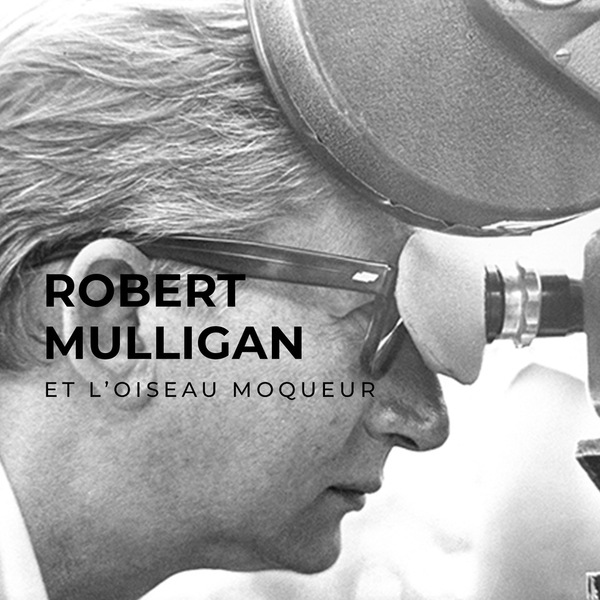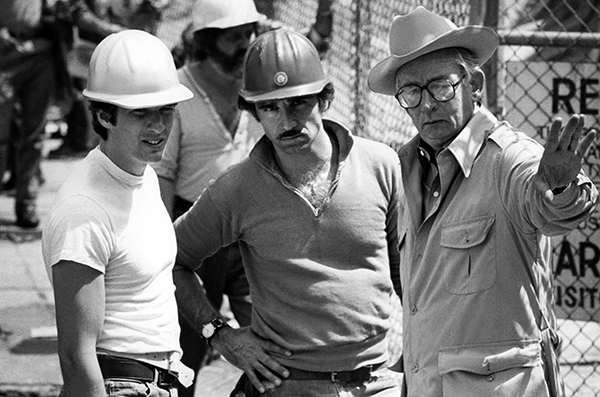Robert Mulligan,
pulled out of oblivion
PostED ON OCTOBER 13, AT 7PM
A marvelous documentary pays tribute to the nuanced work of the American director, an Oscar winner in 1963 for To Kill a Mockingbird. To discover on Ciné + in January.

Lionel Lacour was looking a bit nervous. This Sunday, at the entrance of theater 2 of the Institut, his role was not to welcome the Lumière ambassador who had come to introduce of the film of the day. The ambassador was none other than himself, the man who had had the audacity to make a documentary about a partially forgotten filmmaker, Robert Mulligan (1925-2008), which the festival deemed a good choice for its tenth anniversary edition. Why Mulligan? Because the late discovery by Lionel Lacour of Mulligan’s best-known film, To Kill a Mockingbird, winner in 1963 of three Oscars – including a Best Actor award for Gregory Peck - led him to search for material on him. "A book? It didn’t exist. A documentary? None, either."
His first priority was to write a biography that would bring him to life, before a Lyonnais producer of his friends, Jérôme Duc-Maugé, persuaded him to make a documentary, even though it seemed there were very few archive images of Mulligan. They would make do with what they could, or rather, do without! After an informal conversation with Michel Ciment, the project definitely took shape; the director of the magazine Positif revealed that he still had the recording of his interview with Mulligan, made in 1972 at the time of the release of Summer of ’42. This solemn, grave voice would serve as a guide for the exploration of Mulligan’s work as an artist, a fine observer of American society of the sixties.
Testimonies solicited from both sides of the Atlantic helped complete the portrait, including participation by American critic Armond White, Robert Stein (Robert Mulligan's agent), Michel Ciment, of course, or Didier Decoin (screenwriter of I... For Icarus), and #1 fan of the filmmaker, who still remembers his excitement as he emerged from a Parisian movie theater after seeing Summer of ’42. He had even approached passers-by, encouraging them to run and discover this wonder.
Why did the films of Robert Mulligan fall into oblivion? Probably because the social outline of many of his works no longer corresponded to the canons of cinematographic elegance dictated by the likes of Marvel, among others. Mulligan was not of that mentality; he was a filmmaker of the human being. His superheroes defended justice and the law (Gregory Peck, admirable as a full-fledged lawyer in segregationist America of the 60s) where they interfered with the system, or like Nathalie Wood, irresistible in Inside Daisy Clover, a critique of the star system.
 Robert Mulligan on the set of Bloodbrothers
Robert Mulligan on the set of Bloodbrothers
Another avenue suggested by Michel Ciment, was the fact that, although Robert Mulligan had been a malleable creator, or an "adaptable" one, as his critics preferred to say, he was invariably elegant; at ease making comedies (Come September with Gina Lollobrigida and Rock Hudson), westerns (The Stalking Man starring again Gregory Peck) or even the genre film (The Other). Armond White recalls how unjustly Mulligan was criticized for his "lack of style," but prefers to emphasize that Mulligan, attached primarily to what he wanted to say, chose to make his style "invisible."
Implicitly, it is precisely this "transparent" man that the film of Lionel Lacour strives to reveal to us. We must wait until the last five minutes to finally discover the face of an old wise child, invariably dressed in his V-neck sweater under which he sported a tie. The manner in which Mulligan left the cinema in 1991 at the age of 66, is illustrative of how low-profile this man was. That year, he made a film of which he was particularly proud, The Man in the Moon, in which a certain Reese Witherspoon made her début at age 15. But audiences did not follow along, and Mulligan drew his conclusions, saying "I had my time." But now, time has become his ally, thanks to a documentary that inspires you to absolutely (re)discover a timeless work.
Carlos Gomez

